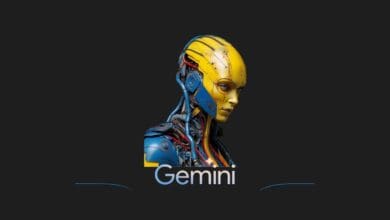Writing SEO-Friendly Content with Artificial Intelligence

With the advent of advancing technologies, a plethora of concepts like robots, machines, learning machines, and so forth have emerged. These concepts, while distinct, interconnect and have led to the integration of intelligence into machines and robots in contemporary times. Artificial intelligence (AI) operates across numerous business sectors, facilitating their expansion and broad use. Contrary to the belief that AI aims to supplant human job roles, its primary objective is to evolve existing industries and cultivate new career opportunities.
The term AI derives from “Artificial Intelligence,” which encompasses systems and machines that emulate human cognitive functions to execute specific tasks. These machines, robots, or other technological devices are embedded with chips that endow them with human-like intelligence. Artificial intelligence technology is especially favored for tasks that pose high risks or challenges for human workers.
In this article from Metaverse Planet, we will delve into the impact of artificial intelligence on SEO efforts. We will discuss various aspects, such as content analysis, keyword research, content generation, and SEO tracking. We hope you find this read informative and enjoyable.
The Impact of Artificial Intelligence on SEO Studies

Google has further cemented its dominance in the search engine market by increasingly entrusting routine tasks to artificial intelligence equipped with machine learning capabilities. When it comes to SEO and related matters, Google’s algorithms leverage artificial intelligence to ensure that users are presented with the most relevant search results, while also aiming to prevent malicious practices such as spam. These search results are tailored to the individual, taking into account factors such as geographic location, website usage history, past search inquiries, and certain personal data.
For every 5 to 10 searches conducted on search engines other than Google, between 80 and 90 are carried out on Google. Unlike other search engines that may only process search queries on their own platforms, Google Chrome benefits from the vast array of data collected through numerous channels including Android devices, smart TVs, Gmail, and more. This extensive data collection allows artificial intelligence to learn and improve continuously.
From an SEO perspective, it’s crucial to align site optimization with Google’s algorithms. However, the nuances of artificial intelligence enhancements and ranking factors change depending on the nature of the search query. This is because the algorithm tailors its operations to how users phrase their queries, which websites they frequent for information, and the ultimate search results they find, as well as other search-related factors. These elements are integral to the algorithm’s process of determining page rankings.
AI-Powered Content Analysis

Artificial intelligence has begun to revolutionize various sectors by transcending its traditional role in repetitive and structured tasks to include jobs that demand creativity. The advent of artificial intelligence technology has paved the way for services capable of generating text on a given topic swiftly and effortlessly.
These AI services can craft original articles within minutes when provided with a subject title and keywords, and they are improving in efficacy with each passing day. Although content generated by AI typically requires refinement by professional editors, it is anticipated that such human intervention might become unnecessary in the near future. Natural Language Processing (NLP), a subdivision of artificial intelligence technology, is employed in the automated generation of text. NLP systems enable the understanding and grammatical scrutiny of text.
Content production services powered by artificial intelligence are designed with straightforward interfaces, making them accessible to anyone, including the average internet user. Consequently, these services cater to a broad audience, ranging from individual blog owners to large-scale digital marketing agencies, facilitating the rapid creation of needed content.
AI-Powered Keyword Research

Adapting to artificial intelligence in content creation is crucial. For content to rank well, it must not only be SEO-friendly but also align with search queries. For instance, when addressing a query like “What is artificial intelligence,” crafting content that is not only informative but also incorporates the keyword frequently and includes visual elements is a more interactive approach. This is because search engines, through the use of AI, discern what users expect to see when they enter a query.
While creating content, one should focus on the user’s expectations regarding the topic. Doing so enhances the website’s compatibility with artificial intelligence.
AI-Powered Content Creation

The content creation process encompasses four fundamental stages, outlined as follows:
- Content Production: Text is crafted using artificial intelligence that leverages the relevant topic title and keywords. Popular tools include Article Forge, INK For All, Copy Shark, and Jasper.
- Content Editing and Optimization: AI assistance is utilized to paraphrase and summarize existing articles. These tools also help rectify grammatical errors while ensuring content is not duplicated. Notable optimization tools comprise Grammarly and WordAI.
- Content Personalization: Companies expedite the creation of personalized messages tailored to customers’ demographic details by incorporating their customer information databases into AI tools. Tools like Concured and H2O are employed for this purpose.
- Text Mining: These tools analyze internet search data related to a company’s products or services to discern topics of high curiosity. Insights gained are then used to fine-tune the content. Semrush and Monkey Learn are among the tools recognized for their efficacy in text mining.
AI-Powered SEO Monitoring

SEO is a pivotal element in selecting effective keywords and optimizing for search engines. Proper keyword choice can elevate your website’s ranking on search engine results pages, helping your site to stand out.
Beyond selecting accurate keywords, the speed of this selection is also critical for SEO. Consequently, SEO professionals often employ AI-based keyword tools. These AI-driven tools aid in rapid and precise keyword selection, while also assessing the website’s rank for those keywords and identifying its strengths and weaknesses. This analysis paves the way for targeted improvements and optimization of the site’s shortcomings, ultimately boosting traffic and engagement.
Additionally, AI-powered tools enable the assessment of keyword competition levels. This insight greatly simplifies the process of making strategic keyword decisions.
This article from Metaverse Planet has aimed to inform you about various topics, including the impact of artificial intelligence on SEO, content analysis, keyword research, content creation, and SEO tracking. For more extensive content on artificial intelligence and its synergy with SEO, please visit our website.











